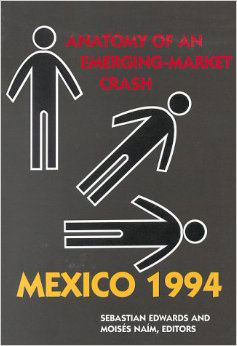Source: Washington
 Mexico's 1994 "peso crisis" has rightly been called "the first financial crisis of the 21st century." As the East Asian turmoil also clearly attests, financial crises are no longer what they used to be and they catch experts, investors, governments, and international organizations by surprise.
Mexico's 1994 "peso crisis" has rightly been called "the first financial crisis of the 21st century." As the East Asian turmoil also clearly attests, financial crises are no longer what they used to be and they catch experts, investors, governments, and international organizations by surprise.
In late December 1994—after attracting widespread praise as a model of economic reform, becoming a super-magnet for international investors as well, and joining the United States and Canada as a partner in NAFTA—Mexico plunged into political and economic crisis. What went wrong? What role was played by design flaws in the Mexican reforms? By political and economic decision-making; by external market forces; by sheer bad luck?
Mexico 1994 is as much about one country's experience as about our changing world. The book offers in-depth analysis of long-term political and economic processes that set the stage for the crisis, and of specific actions in Mexico and abroad that prompted the crash and shaped its outcome. It also casts much-needed light on important new interrelationships between domestic and global phenomena.
The authors are uniquely positioned to provide valuable insights on both the Mexican crisis and the metamorphosis in the nature of financial debacles. Some of the contributors had first-hand experience with the Mexican crash and with the unfolding East Asian crisis as government officials, international money managers, or senior officials at the World Bank, the International Monetary Fund, and the Inter-American Development Bank; others are leading economists, political scientists, and influential financial commentators.
Contributors are: Robert L. Bartley, Nancy Birdsall, Shahid Javed Burki, Agustin Carstens, Rudiger Dornbusch, Denise Dresser, Jeffry A. Frieden, Michael Gavin, Francisco Gil-Diaz, David D. Hale, Ricardo Hausmann, Claudio M. Loser, Sebastian Edwards, and Moisés Naím.
